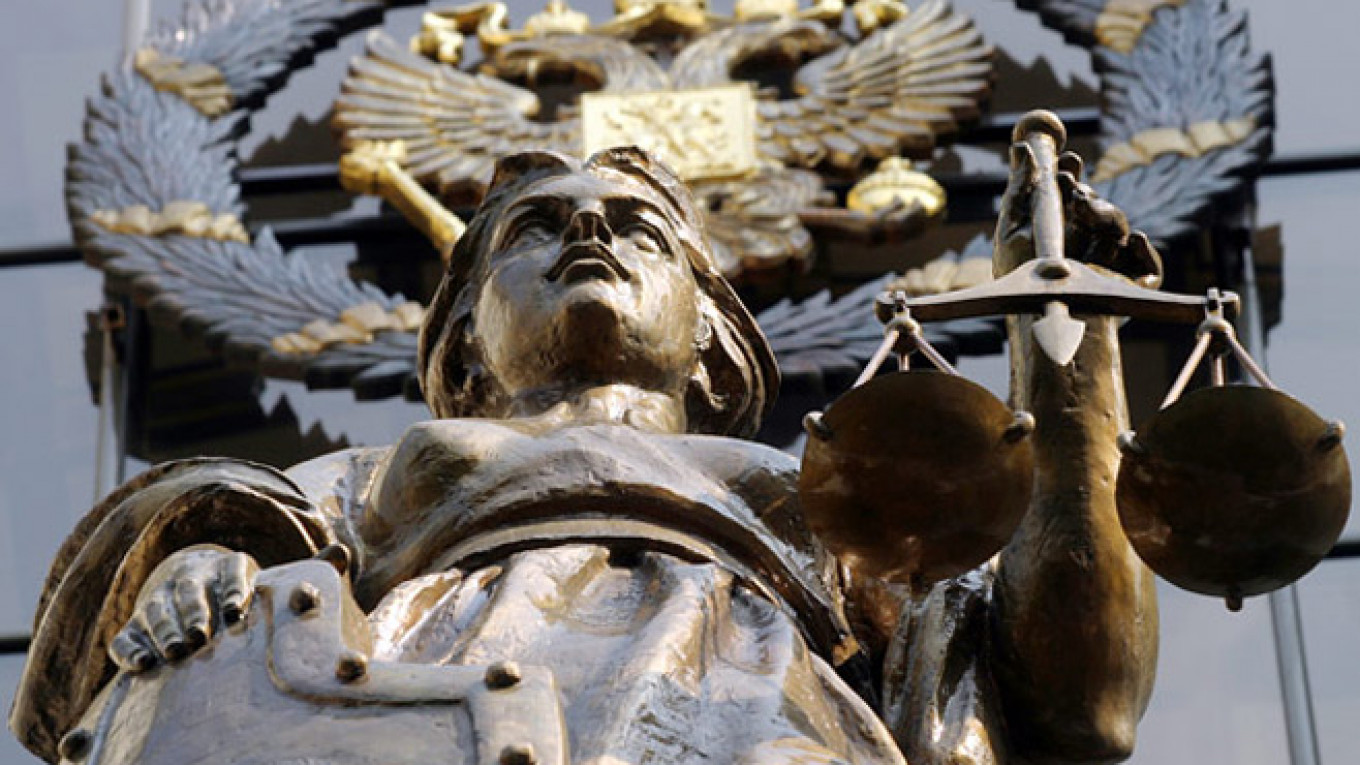Russia's Justice Ministry has filed a claim with the Supreme Court seeking the liquidation of the Russian Memorial Society, an independent human rights group. Critics say the move exemplifies the Kremlin's ongoing stifling of non-governmental organizations.
The Russian Memorial Society, which was nominated for a Nobel Peace Prize by the European Parliament last year, was created in the 1980s by Soviet dissidents to preserve the legacy of the victims of Stalinist repression.
News broke among Russian state-run media outlets Friday that the Justice Ministry had appealed to the Supreme Court in late September to dissolve the NGO, which has been critical in recent months of Russia's stance on Ukraine. The high court's hearing on the matter is set for Nov. 13.
According to a statement published by Memorial on Saturday, the Justice Ministry's official explanation for the lawsuit — which it has not made public — centers on technicalities involving the human rights group's organizational structure.
Memorial, which is comprised of a patchwork of smaller groups that work in the fields of philanthropy, human rights advocacy and historical research, said in a statement that the Russian government had started expressing concern regarding the organization's status in 2012.
Under Russian law, an organization can only be classified as "national" if it is represented across more than half of Russia's regions via formally registered "regional" organizations. Memorial is comprised of numerous organizations operating across the country under one central umbrella, but it lacks a head office that oversees all of the regional branches' operations.
"The truth in situations like these lies somewhere in the middle," Lev Ponomaryov, one of the founders of Memorial, told The Moscow Times on Sunday. "Maybe there are in fact structural issues with the organization, but why has this become a problem only recently? The Justice Ministry did not see this as a problem for many years."
The human rights group said it had been planning to hold an intra-organizational conference on how to restructure in response to the Justice Ministry's concerns when it was targeted by the Supreme Court claim.
"The Justice Ministry's claims are baseless," the organization said in an online statement published Saturday, pledging to file a complaint challenging the government's legal action with the Constitutional Court.
The organization's chairman Arseny Roginsky, a former Soviet prisoner, told the RBC news agency that in the event of the Russian Memorial Society's dissolution, some organizations that had worked under its umbrella would simply re-register with the Justice Ministry.
Last week, state-run television channel NTV launched an apparent smear campaign against the organization, accusing it of "supporting extremists and terrorists," an allegation Memorial said was a "deliberate lie."
Some media outlets confused Russian Memorial Society with the Memorial Human Rights Center while covering the Justice Ministry's claim over the weekend.
"There were reports on television saying that the Justice Ministry wanted to liquidate the Memorial Human Rights Center, which is actually not the case," Ponomaryov said. "The Human Rights Center operates in hot spots like the Caucasus and its work is more controversial in the eyes of the leadership. But the organization they are actually going after — the Memorial Society — is essentially meant to keep the legacies of victims of Soviet-era repression alive."
In the decades that have passed since it was established, the Russian Memorial Society has expanded beyond documenting Stalinist repression to monitor the contemporary human rights situation across the country.
Memorial board member Natalia Estemirova, who had been investigating extrajudicial murders and abductions in Chechnya, was abducted and fatally shot in Ingushetia in 2009.
In July 2014, the Justice Ministry slapped the organization with the politically charged label of "foreign agent," in accordance with a 2012 law requiring NGOs that receive foreign funding and engage in vaguely defined "political activities" to register as such.
NGOs can be fined up to 300,000 rubles ($7,500) or their administrators can be imprisoned for two years they do not voluntarily register as "foreign agents." The Justice Ministry also has the prerogative to unilaterally impose the label on NGOs, as it did with Memorial.
Contact the author at g.tetraultfarber@imedia.ru
A Message from The Moscow Times:
Dear readers,
We are facing unprecedented challenges. Russia's Prosecutor General's Office has designated The Moscow Times as an "undesirable" organization, criminalizing our work and putting our staff at risk of prosecution. This follows our earlier unjust labeling as a "foreign agent."
These actions are direct attempts to silence independent journalism in Russia. The authorities claim our work "discredits the decisions of the Russian leadership." We see things differently: we strive to provide accurate, unbiased reporting on Russia.
We, the journalists of The Moscow Times, refuse to be silenced. But to continue our work, we need your help.
Your support, no matter how small, makes a world of difference. If you can, please support us monthly starting from just $2. It's quick to set up, and every contribution makes a significant impact.
By supporting The Moscow Times, you're defending open, independent journalism in the face of repression. Thank you for standing with us.
Remind me later.






